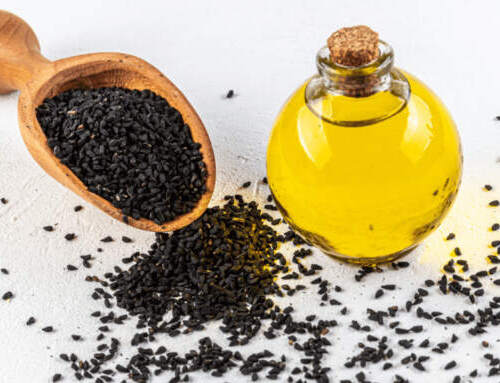Brain Boosting Power of Mint Leaves
 Mint leaves, often relegated to being a mere drink enhancer or a remedy for an upset stomach, are a nutritional powerhouse brimming with essential vitamins, minerals, and health benefits. Mint stands out as a top-tier herb in the realm of healing, with recent studies from institutions like Wheeling Jesuit University [study] and the University of Cincinnati [study] highlighting its extensive benefits. These include boosting cognitive function and mental clarity, enhancing blood flow, and offering relief from conditions like irritable bowel syndrome.
Mint leaves, often relegated to being a mere drink enhancer or a remedy for an upset stomach, are a nutritional powerhouse brimming with essential vitamins, minerals, and health benefits. Mint stands out as a top-tier herb in the realm of healing, with recent studies from institutions like Wheeling Jesuit University [study] and the University of Cincinnati [study] highlighting its extensive benefits. These include boosting cognitive function and mental clarity, enhancing blood flow, and offering relief from conditions like irritable bowel syndrome.
Beyond simply freshening breath, mint leaves, particularly when infused in peppermint tea or used as peppermint oil, have shown significant promise in increasing brain function and cognitive performance. Research indicates a positive effect on controlling blood pressure, managing long-term memory issues, and even alleviating mental fatigue and tension headaches, as noted in publications like the International Journal of Neuroscience. [study]
So, how can mint leaves elevate your health, and what are the best ways to weave them into your daily regimen? This is what you need to explore. Incorporate peppermint to witness significant improvements in brain power, cognitive decline, especially in older adults, and overall mental performance. From boosting memory to alleviating symptoms of Alzheimer’s, the effects of peppermint and its aroma are backed by scientific research [study], including studies on its active ingredient’s impact on the hippocampus area of the brain. Embrace the power of this popular oil and discover the myriad ways it can enhance your life, from reducing joint pain to mitigating postoperative nausea and even improving your attention span. Read more about peppermint and mint, and let their benefits transform your health and cognitive landscape.
What are Mint Leaves
Mint leaves, a term generally applied to plants within the Mentha genus, are predominantly associated with peppermint and spearmint — the two most frequently encountered varieties. Spearmint, known for its sweet taste, is a versatile ingredient in numerous recipes. In contrast, peppermint, with its higher menthol content, is celebrated for its medicinal properties, notably in peppermint essential oil, which recent research suggests can significantly alleviate abdominal pain, tension headaches, and symptoms of irritable bowel syndrome (IBS). [study]
The benefits of peppermint oil extend further, offering relief from brain fog and boosting memory, as noted in systematic reviews and clinical trials. Its aroma, often encapsulated in peppermint candy or experienced as a whiff of peppermint, has been shown to induce physiological arousal, enhancing brain activity, energy levels, and even heart rate — crucial factors in concept formation and cognitive performance.
Moreover, peppermint’s influence on the nervous system is evident, with its different scents contributing to alleviating symptoms like cold symptoms and promoting relaxation, potentially benefiting those with Alzheimer’s disease or general memory loss. The use of essential oils like peppermint and lavender has been a subject of increasing interest in the scientific literature, with studies documenting their ability to modulate oxygen saturation, blood sugar levels, and even provide a therapeutic effect in massage therapy.
As one of the most popular essential oils, peppermint’s applications are diverse, from a daily routine booster to a component in herbal medicines targeting oxidative stress and neurodegenerative diseases. With its proven efficacy in improving brain health and overall well-being, peppermint stands out in recent years as a subject of extensive study and appreciation, making it a staple in the realm of herbal remedies and aromatic therapies. So, the next time you encounter this powerful herb, remember the vast array of benefits it offers, from the aroma of peppermint to its role in long-term health and cognitive maintenance.
Health Benefits of Mint Leaves
1. Improve Digestive Health
Mint, particularly noted for its stomach-calming abilities, is a go-to remedy for digestive discomfort. Recent studies and systematic reviews have recognized the significant difference peppermint oil, rich in menthol, makes in relaxing digestive muscles and alleviating symptoms of IBS. Additionally, the scent of peppermint, often used in experimental groups and clinical trials, has been linked to improved gastrointestinal function, supporting its longstanding use in herbal medicine and its growing recognition in modern scientific literature.
2. May Relieve Cold Symptoms
Most over-the-counter cold remedies feature menthol, a key component of peppermint oil, as an ingredient. While its efficacy in congestion relief has been debated, recent systematic reviews and clinical trials suggest menthol may enhance airflow and diminish cold symptoms. This aligns with the growing body of research, including studies in the United States and press releases from medical institutions, acknowledging the therapeutic potential of peppermint essential oil and its wider uses in alleviating various respiratory conditions. [Peppermint for Colds]
3. Help Oral Hygiene
Chewing mint-flavored gum or mints is not just a quick fix for bad breath; recent studies suggest it also supports oral hygiene. A systematic review of various clinical trials indicates that the antimicrobial properties of peppermint essential oil, often used in these products, may contribute to improved oral health, echoing previous research and press releases from health institutions. This simple habit, popular from middle school to adulthood, could be a natural, memory-boosting addition to daily dental care routines.
4. Boost Brain Function
Recent research suggests that the mere inhalation of peppermint essential oil can significantly enhance brain function and cognitive performance. The effects of peppermint aroma, particularly noted in studies on aspects of cognition and mood, indicate that exposure to this scent may improve memory, alertness, and overall mental clarity. This aligns with findings on the health benefits of peppermint and its impact on the central nervous system, suggesting that something as simple as smelling peppermint could boost learning, memory, and mood in healthy participants.

5. Soothe Breastfeeding Pain
Cracked, sore, and painful nipples are frequent yet challenging side effects of breastfeeding. The application of peppermint essential oil, known for its soothing effects, may offer relief. Studies suggest that the aroma of peppermint essential oil not only aids in cognitive and mood enhancement but also possesses properties that can help soothe and heal, making it a potential remedy for the discomfort associated with breastfeeding. The effectiveness of peppermint, particularly Mentha × piperita L., in various health aspects, underscores its potential as a natural, olfactory-based solution for nursing mothers.
6. Reduce PCOS Symptoms
Research indicates that the health benefits of mint, particularly through the ingestion of mint tea, may extend to alleviating symptoms of polycystic ovary syndrome (PCOS). The effects of peppermint and cinnamon, along with the olfactory benefits of peppermint essential oil, have been studied for their impact on hormonal balance and cognitive and mood improvement. The administration of peppermint odor and exposure to its aroma could potentially enhance alertness and performance, offering a holistic approach to managing PCOS while promoting overall well-being and digestive health. This suggests that the aromatic and therapeutic properties of peppermint might be a beneficial, natural adjunct in the treatment of PCOS symptoms.
7. Decrease Indigestion
Indigestion, or dyspepsia, often manifests as heartburn, nausea, and abdominal pain. Research indicates that the effects of peppermint essential oil, particularly its ability to expedite stomach emptying, may alleviate these symptoms. The inhalation of peppermint aroma has been studied for its cognitive and mood-enhancing effects, suggesting a broader impact of peppermint on health. Its aromatic properties, combined with its physiological benefits, demonstrate how peppermint not only helps relieve indigestion but also contributes to improved mood and cognitive performance. This makes peppermint a multifaceted remedy, enhancing both digestive wellness and overall mental alertness.

In conclusion, the power of peppermint extends far beyond its refreshing scent. From enhancing athletic performance to boosting alertness and cognitive performance, the benefits of peppermint are backed by a myriad of studies, including those from the prestigious American Journal of Psychology and research by Raudenbush. Whether you’re looking to improve your mood, increase your concentration and focus, or even enhance memory and learning, peppermint, in its many forms, offers a natural, potent solution.
Understanding the multifaceted effects of peppermint is just the beginning. To truly experience the therapeutic benefits, consider incorporating it into your wellness routine. And what better way to do this than by scheduling a massage at Body Ache Escape? Our expert therapists utilize the aromas of plant essential oils, including peppermint oil, to create an environment that promotes relaxation, cognitive enhancement, and overall well-being. Don’t just take our word for it; inhale the peppermint scent and feel your mood and workload lighten as you experience improved cognitive and physiological states.
Take the first step towards a healthier, more alert, and focused you. Visit Body Ache Escape today to schedule your massage and let the potent aroma of peppermint, along with our expert care, guide you to a state of enhanced performance and well-being. Remember, when it comes to health, a little peppermint goes a long way, and at Body Ache Escape, we’re here to help you harness its full potential. Book your session now and let the journey to improved health and mood begin!



